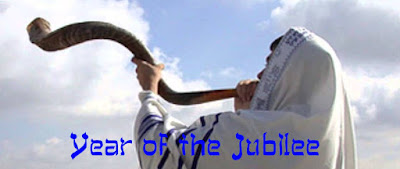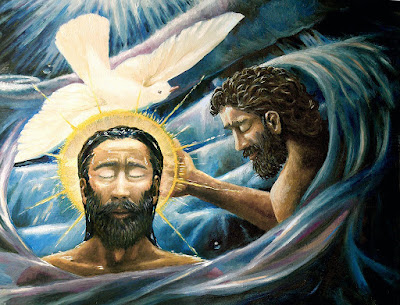Several years ago, I was at the bedside of a very dear friend who was dying. I had just finished reading to him the Office of Compline when he asked me to read the Office of the Dying. That’s the one where you call on all the saints to be present. It was very emotional but somehow, we got through it. He seemed peaceful, almost serene.
I began to gather my things so I could slip out the door, leaving him resting when he stirred and asked me to read one more thing. Of course, I said. What would you like me to read? 1 Corinthians 1: 1-13. You may know that this was the Epistle lesson we just heard.
I got out my cell phone (what did we ever do before cell phones?) and googled the passage and read it to him. When I finished, he whispered, again. Again? I asked. Again, said he.
So, I read the passage again, this time a little more slowly and with intention, so that he might hear it better. When I finished, he whispered, again. Again? I asked. Again, said he.
For a third time, I read this passage. I found, this time, that the words began to affect me deeply, moving something in my soul I didn’t know was there and couldn’t name. There must have been something in my voice because when I finished, I looked at my friend and he was smiling. Thank you, he whispered.
I asked him why he had me read this passage three times and he smiled again and whispered, Because, these are the words that give life meaning – that make any sense out of this life. And, he whispered, because before I take my leave, I wanted to make sure that you heard them.
I have come to understand that my friend, from his deathbed, was giving me a great gift. I have never been a huge fan of St. Paul’s letters but these words and their soaring prose and poetry are ones I treasure as the core theology of what it means to be a Christian.
If we are to follow the teachings of Jesus with any integrity, love must be at the center of who we are and all we do. Our Presiding Bishop, Michael Curry, has preached, If it’s not about love, it’s not about God. Let me say that again: If it’s not about love, it’s not about God.
One of my teachers and mentors was a woman named Verna Dozier. She used to say that we read the scriptures out of order. She’d say that the Gospel was a reflection on the Hebrew Scripture and the Epistle was a reflection on the Gospel.
Now, I’m sure that St. Paul had heard this story from St. Luke and the other disciples and followers of Jesus, about the first time Jesus preached in the synagogue in his hometown of Nazareth. And, about how the Nazarenes were jealous – yes, jealous – that Jesus would not perform the miracles in Nazareth as he had in Capernaum.
They were so filled with rage, they got up and drove him out of town and meant to hurl him off a cliff. But scripture says that he passed through the midst of them and went on his way.
Just imagine that scene. Imagine the self-restraint and the dignity it took for Jesus not to engage their anger. Imagine the love he had for him not to use his power to hurt them as they meant to hurt him. He took no retaliation but rather passed through them and went on his way.
I wonder. I wonder if St. Paul didn’t have this image of Jesus in the back of his mind when he wrote that “… it (love) does not insist on its own way; it is not irritable or resentful; it does not rejoice in wrongdoing, but rejoices in the truth. It bears all things, believes all things, hopes all things, endures all things.”
Oh, but someone is saying, “that’s too high a standard for mere mortals. It’s only human to want to protect yourself from a jealous rage.” Indeed. It is ‘only human’. It is humans who are Christian, however, who follow the way of Jesus, who seek the higher ground, the better way. To pass through it and be on our way.
I was recently introduced to a book called, “Love as a Business Strategy: Resilience, Belonging and Success.” It’s the story of a high-tech business called Softway and how its founder and CEO learned about love while staring into the abyss of deep despair. It’s the story of how he brought his company back from the brink of the disaster of a cold and cruel corporate layoff with the only strategy he felt could work: Love.
I have become convinced that what will save the institutional church is to pay attention to the words of St. Paul. I think every bishop and every member of every diocesan staff should read this book and then meditate on the passage from St. Paul’s letter to the church in Corinth.
I know. I know. We talk a good line in the church, don’t we? We talk about how Jesus is Love Incarnate, Love Divine. We even sing it! We just celebrated the Incarnation of Love at Christmas. But most days, you’d be hard pressed to find much evidence of love in the church.
Here are a few quotes from “Love as a Business Strategy” that I think the church should hear:
“Love means doing things out of care for others and with the intent of helping others, even if those things aren’t easy.”
“Love means not sweeping problems under the rug.”
“Love means working toward inclusion rather than reinforcing hierarchy.”
“Love means embracing the hard conversations rather than avoiding them.”
“Love means building processes, tools, and policies that align people with profit.”
“Love means support, accountability, and trust, which leads to innovation, efficiency, and measurable business outcomes.”
“Love as a business strategy is not built with words. It’s built out of consistent daily action. It requires a focus on strong, inclusive relationships that are rooted in truth and mutual respect. It’s a long process, and often it’s a messy one. But it works.”
The book stresses that we have to create a culture of love, an ethic of love, that is consistent in both small, seemingly insignificant ways as well as the big, important things. This is not something that can be taught. It’s something that has to be lived. Every day.
So, I’m going to leave you with a bit of homework. I’m going to ask you to look up this passage from St. Paul. You’ll find it in the First Letter to the Corinthians – or One Corinthians. It’s in the 13th Chapter, verses 1-13.
I’d like you to find some time today when you can read it to yourself. And then, read it again. Out loud this time. And then, read it again. Again, read it out loud. As you read, listen – really listen – to the words. Listen to what the words are saying to you. Listen to how you feel after you’ve said a particular word. Let the words find places of truth in you.
Because my friend on his deathbed was absolutely right: these are the words that give life meaning – that make any sense out of this life – I’m going to read them to you again. Because while I’m not planning on leaving you for a long time, I want to make sure that you hear them and take them into your very being so that together, we can begin to create a culture of love that will not only change us, but it will change and transform the world. Hear the words again:
13 If I speak in the tongues of mortals and of angels, but do not have love, I am a noisy gong or a clanging cymbal. 2 And if I have prophetic powers, and understand all mysteries and all knowledge, and if I have all faith, so as to remove mountains, but do not have love, I am nothing. 3 If I give away all my possessions, and if I hand over my body so that I may boast,[a] but do not have love, I gain nothing.
4 Love is patient; love is kind; love is not envious or boastful or arrogant 5 or rude. It does not insist on its own way; it is not irritable or resentful; 6 it does not rejoice in wrongdoing, but rejoices in the truth. 7 It bears all things, believes all things, hopes all things, endures all things.
8 Love never ends. But as for prophecies, they will come to an end; as for tongues, they will cease; as for knowledge, it will come to an end. 9 For we know only in part, and we prophesy only in part; 10 but when the complete comes, the partial will come to an end. 11 When I was a child, I spoke like a child, I thought like a child, I reasoned like a child; when I became an adult, I put an end to childish ways. 12 For now we see in a mirror, dimly,[b] but then we will see face to face. Now I know only in part; then I will know fully, even as I have been fully known. 13 And now faith, hope, and love abide, these three; and the greatest of these is love.
For as our Presiding Bishop, Michael Curry, says, “If it’s not about love, it’s not about God.”
And, if that’s true, and I believe it is, the only business strategy in the church is love.
Amen.





